Writers and gin: they go together like olives and Martinis. Seek sipping inspiration from these famous mentions of cocktails in literature.
Throughout the centuries, writers have relied on liquid muses when composing their masterworks – and few spirits have enjoyed as much literary renown as gin. From Dickens to Fitzgerald, Hemingway to Chandler, these famous instances of cocktails in literature are sure to get your creative juices flowing (not to mention your thirst). Read on with a frosty gin serve at your side; it’s what the literary greats would have wanted.
Ian Fleming’s Vesper
Before James Bond was immortalised on screen, instructing his bartender to make his Martini “shaken, not stirred,” he was gallivanting across the pages of Ian Fleming’s bestsellers. Though the spy is renowned for ordering Martinis (both gin and vodka), it’s the Vesper (a blend of gin and vodka), mentioned in Casino Royale, that’s our favourite sipping inspiration:
“Three measures of Gordon’s, one of vodka, half a measure of Kina Lillet. Shake it very well until it’s ice-cold, then add a large thin slice of lemon peel. Got it?”
When it comes to cocktails in literature, few other writers can match Hemingway.
Philip Larkin’s G&Ts
You don’t have to look hard to find cocktails in literature; given many writers’ drinkerly persuasions, it shouldn’t be a surprise that cocktails figure in poetry, too. One of the best-described examples can be found in Philip Larkin’s poem, “Sympathy in White Major,” in which he describes the makings of the perfect gin and tonic:
“When I drop four cubes of ice/Chimingly in a glass, and add/Three goes of gin, a lemon slice,/And let a ten-ounce tonic void/In foaming gulps until it smothers/Everything else up to the edge…”
Hemingway’s Martinis
When it comes to cocktails in literature, few other writers can match Papa Hemingway, whose personal tastes extended from absinthe to whisky, wine to vermouth, Mojitos to Daiquiris. But Hemingway was also, quite rightly, a fan of the Martini. In A Farewell to Arms, his narrator describes the cocktail in a way we can certainly relate to:
“I had never tasted anything so cool and clean. They made me feel civilized.”
Fitzgerald’s Gin Rickeys
It’s no surprise that F. Scott Fitzgerald, author of such decadent, Jazz-Age works as The Great Gatsby and The Beautiful and Damned, was very fond of a drink. The Gin Rickey was supposedly one of the author’s favourites, and he describes the drink very capably in Chapter 7 of The Great Gatsby:
“[…]Tom came back, preceding four gin rickeys that clicked full of ice. Gatsby took up his drink. ‘They certainly look cool,’ he said, with visible tension. We drank in long, greedy swallows.”
Dickens’s Punch
We already know that the prolific Dickens wrote very capably about gin shops. But the author also knew his way around a bowl of punch, as he demonstrated in the following passage from David Copperfield:
“I informed Mr. Micawber that I relied upon him for a bowl of punch, and led him to the lemons. His recent despondency, not to say despair, was gone in a moment.”
Raymond Chandler influenced how cocktails are made.
Raymond Chandler’s Gimlet
Writers aren’t only great appreciators of a good cocktail; in many cases, they’ve helped influence how cocktails are made. That’s true in the case of Raymond Chandler, who, in his 1953 novel, The Long Goodbye, set out a clear recipe for the Gimlet that governed its preparation for decades afterwards:
“We sat in a corner of the bar at Victor’s and drank gimlets. ‘They don’t know how to make them here,’ he said. What they call a gimlet is just some lime or lemon juice and gin with a dash of sugar and bitters. A real gimlet is half gin and half Rose’s Lime Juice and nothing else.'”
Feature images © rgbdigital/iStock; huskerchen/iStock
